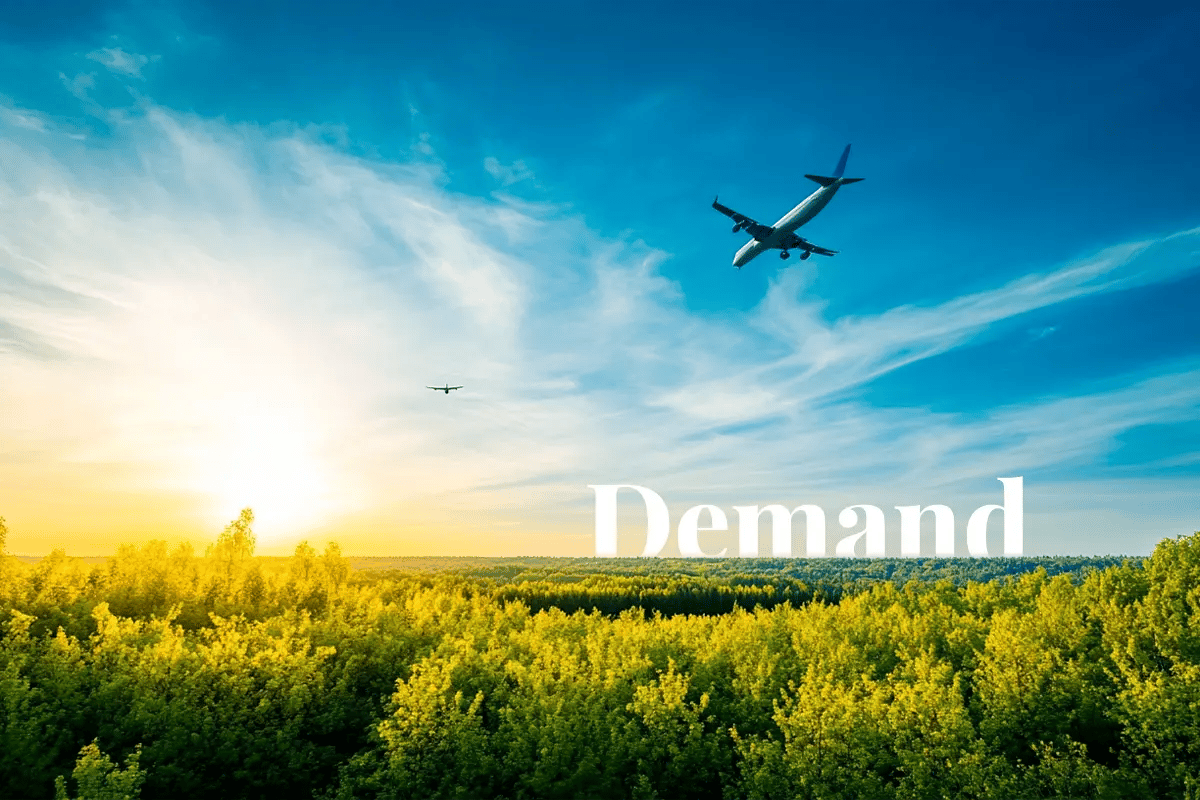Airlines could face a carbon credit bill of up to 150 million tonnes during the first phase of the aviation sector’s emissions offsetting scheme, according to the International Civil Aviation Organization (ICAO). The programme, known as CORSIA (Carbon Offsetting and Reduction Scheme for International Aviation), enters its first official compliance stage between 2024 and 2026.
 A vast green forest stretches to the horizon under a bright blue sky, with an airplane soaring in the distance. AI generated picture.
A vast green forest stretches to the horizon under a bright blue sky, with an airplane soaring in the distance. AI generated picture.
In a report released on 20 March, ICAO said that demand for CORSIA-eligible carbon credits will likely exceed the use of Sustainable Aviation Fuels (SAF) and CORSIA Eligible Fuels (CEF). The supply constraints and high costs of SAF/CEF compared to offsets make credits the more accessible compliance route for airlines.
‘Demand from CORSIA…is likely to exceed the supply of SAF/CEF, making it a supply-constrained market’, said the ICAO’s Committee on Aviation Environmental Protection in the report. The agency added that ‘the use/allocation of limited emissions reductions from SAF/CEF… will likely be driven by the costs of alternatives - eg, emissions units under CORSIA and carbon permits under the EU ETS.’
The financial implications are significant. ICAO estimates the cost of SAF at $600–800 per tonne of CO₂ equivalent (tCO₂e), while CORSIA-eligible carbon credits currently trade between $5.70 and $17.20/tCO₂e. This disparity could lead to a broad range of compliance costs—anywhere from $1.3 billion if only credits are used, up to $8.4 billion if SAF and CEF are included.
Read more: Why carbon credits are a smarter investment than Bitcoin
‘These costs could represent 2% to 13% of airlines' net profits from 2024 to 2026 [estimated at $64 billion]’, the report noted.
Looking ahead to 2035, ICAO has outlined several demand scenarios. In a high-offset scenario—where air traffic remains strong and fuel decarbonisation is limited—offset demand could climb to as much as 1.5 billion tCO₂e. This assumes airlines need to reduce 85% of their 2022 emissions.
Despite the growing need for offsets, ICAO cautioned that ‘the market for CORSIA‐eligible units remains at a nascent stage.’ For now, only sovereign REDD+ credits from Guyana, verified under the Architecture for REDD+ Transactions (ART) standard, qualify for use under CORSIA. Market participants are hopeful that credits backed by World Bank guarantees or host-country Letters of Authorisation could help expand supply.
Read more: ICR updates standards, aligns with CORSIA
As airlines face mounting pressure to offset emissions under schemes like CORSIA, the spotlight is turning to high-quality, verifiable carbon credits. With demand poised to outpace supply, especially for nature-based units, the market is entering a critical phase. Investing in carbon units through DGB Group is more than just a financial move—it’s a commitment to a sustainable and purpose-driven future. Our nature-focused projects generate premium carbon units, precisely the kind that global players are now actively seeking. With the aviation sector gearing up for a surge in offset needs, there’s never been a better moment to explore how you can get ahead of this accelerating shift.




